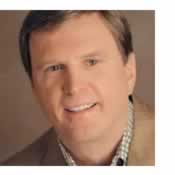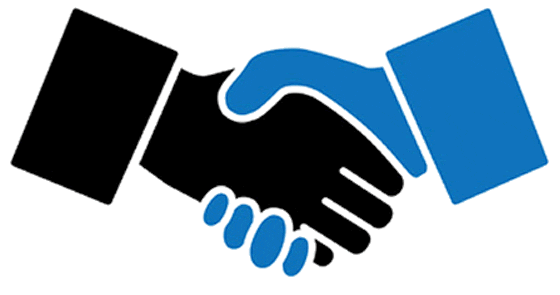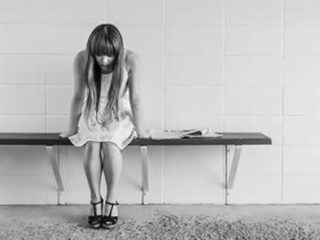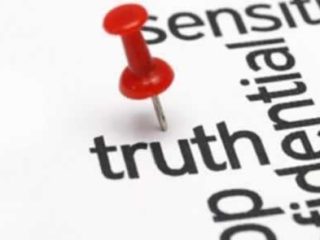The Habits We Learn
We are all imperfect people. We live in a fallen world, and sin is a reality we all deal with. We all have pain and dysfunction in our spirits to some degree unless we have dealt with it. And we all struggle to overcome the negative habits and patterns of our past. We are all victims of the lies the enemy has whispered into our spirits, and none of us have come away from our past without wounds.
God never expects us to be perfect parents, and I have no intention of placing undue guilt on those who are struggling. But it’s also important that we not sweep this spiritual truth under the rug. What we do matters. It matters to God, and it matters to our children.
How we live sets the tone for our family for generations to come. It’s a law of the universe, set in place by the Creator himself.
If you grew up in an angry household, chances are good that you struggle with anger issues. Have you ever heard someone say they were born with a hot temper? I honestly don’t think that’s possible. I don’t think a temper is something you are born with. A person might be born with a propensity toward certain moods or dispositions, but a temper is something you learn. A temper is allowing yourself to strike out in anger when something doesn’t go your way. And it’s a learned response.
If you grew up seeing your parents impulsively lash out when they got angry, chances are good that you learned that response at home. Or you may have learned it from a friend or close relative. But I don’t believe you were born with that trait. You learned it. And anything you learn can be unlearned. A temper is something that people can teach themselves to control.
Abuse is one of the more damaging patterns of behavior that we learn. People who grow up in homes where family members are abused, either physically or emotionally, are more likely to repeat that pattern when they have families of their own.
They learned from their parents that when you get mad, you hit. When someone makes you angry, you lash out at them verbally and/or physically. When we see our parents relating that way, we are far more likely to follow their example than we are to shun it and take a different approach.
The Habits We Repeat
How many times as a child did you see your parents act a certain way or speak a certain phrase, and then say to yourself, “I’m never going to do that when I grow up”? Chances are good that once you started having kids of your own, you found yourself doing the exact thing you said you’d never do.
Then I had kids. And the first time I saw them acting up, I raised my hand and snapped my fingers at them, just like my dad used to do. I didn’t even know it was loaded. It just went o! without notice. I distinctly remember thinking to myself, “Where did that come from?”
How did your parents resolve conflicts when you were young? Did they hit? Did they scream? Did they curse? Did they get angry and stop speaking for days on end? Did they emotionally or physically abuse each other?
Today, do you find yourself repeating those same patterns of behavior? If so, it’s time to unlearn the things you learned from your parents. At some point you have to stop and say to yourself, “Enough is enough!” At some point in life you have to recognize the negative patterns of relating and decide once and for all to put them behind you and change the course of your future. What you saw at home is likely the pattern you’ve repeated in your own marriage. Your attitude toward your spouse is likely the same attitude you experienced from your parents as a child.
These are the questions we all need to ask ourselves. These are the things we need to assess and reevaluate in our lives, because these are the things that are putting direct pressure on the lives of our children. These are the things that are likely causing them to bend and twist as they fight to navigate their future. These are the habits and patterns of behavior that they will be struggling with in their own lives and families.
If your parents had a certain “bent,” and you see the same bent in your own life, it’s time to confront the problem head-on before it passes to your children’s children.
There are some things out of our control. We can’t control our blood- line. We can’t change what was done by generations before us. We can’t control those negative patterns of behavior that our parents struggled with. We can’t do anything about the damaging and destructive habits we saw as children.
But we can control what our children experience. We can change the way we choose to relate to our families and our spouses. We can control what we do with our own pain and dysfunction.
We can take responsibility for the things we say and the way we act at home. We are all free to rise above our circumstances. We are free to forgive the sins of our past and move forward.
We are all free to change. And with the help of God’s Spirit, we have the power to change as well.
No one has to pass on a legacy of pain. We all have the power to choose the legacy we leave behind.
Takeaway
- We are all living between generations, and we all have two legacies that face us. The first is the legacy that has gone before us. The second is the legacy we will leave behind.
- When parents live in sin and disobedience to God it puts tremendous pressure on their children, making it difficult for them to grow up healthy—both spiritually and emotionally.
- The behaviors we witnessed from our parents are likely some of the same traits and habits we will model for our own children. These behaviors, both good and bad, will have a marked impact on our children’s future, often for generations to come.
Adapted from When Life Hurts, by Jimmy Evans
Copyright Jimmy Evans 2013, Published by Baker Publishing Group, used with permission, all rights reserved.



 Jimmy Evans is Founder and CEO of MarriageToday, a ministry based in Dallas, Texas, that is devoted to helping couples build strong and fulfilling marriages and families.Jimmy has authored more than ten books, among which are his popular works, Marriage on the Rock, Freedom From Your Past, Seven Secrets of Successful Families, Ten Steps Toward Christ, Lifelong Love Affair and his newest book, When Life Hurts.
Jimmy Evans is Founder and CEO of MarriageToday, a ministry based in Dallas, Texas, that is devoted to helping couples build strong and fulfilling marriages and families.Jimmy has authored more than ten books, among which are his popular works, Marriage on the Rock, Freedom From Your Past, Seven Secrets of Successful Families, Ten Steps Toward Christ, Lifelong Love Affair and his newest book, When Life Hurts.









